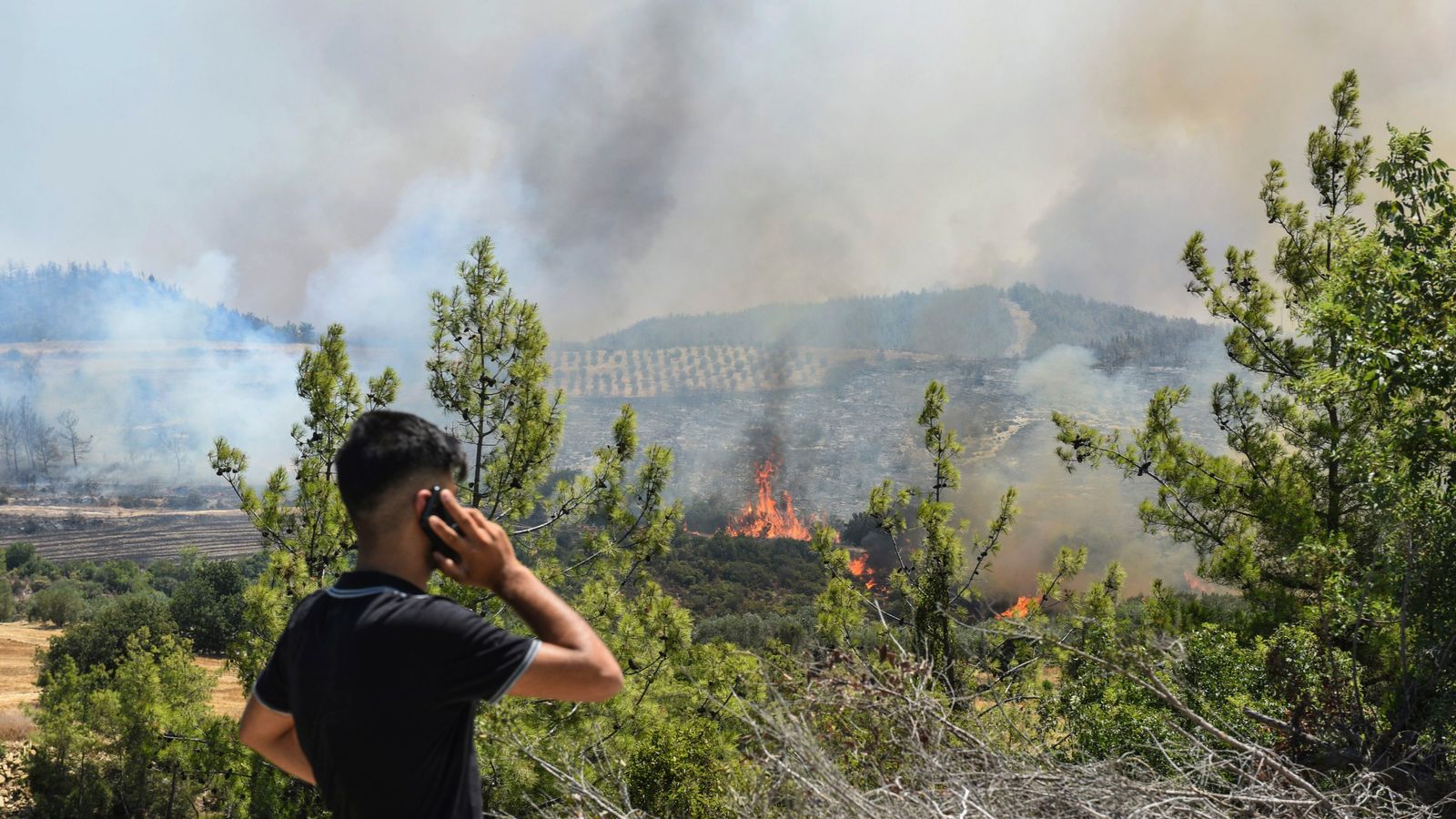The worst heatwave in decades is causing deaths and mayhem across southeast Europe, with wildfires causing entire villages to be evacuated and millions of people instructed not to venture out into the midday sun.
Hot air from Africa is driving the heatwave, with temperatures reaching above 40C (104 F) in many areas, and meteorologists expect the weather will continue into next week making it the most severe since the 1980s.
Authorities in Greece, Turkey, Serbia and Bulgaria, and many other countries in the region, are warning residents to avoid direct sunlight during midday hours, while firefighting crews across the region are scrambling to protect properties.
Please use Chrome browser for a more accessible video player
Dozens of wildfires in Turkey have already claimed several lives and left more than 50 people in hospital according to officials, with villages and beach resorts being evacuated across the south of the country.
Satellite images have shown the devastation caused by deadly wildfires raging across the region.
Those killed in Turkey included a married couple and an 82-year-old man, as well as a 25-year-old volunteer who was taking drinking water to firefighters but was involved in a motorcycle crash.
Azerbaijan has announced that it is sending hundreds of emergency responders to help with the effort, alongside helicopters and specialist equipment.
Russia and Ukraine have also sent planes to help tackle the fires from the skies, with neighbouring Greece offering its assistance.
Authorities in Greece warned members of the public not to embark on unnecessary journeys on Friday as thermometers rose to 40C (104 F) in Athens.
Athens is the location of the hottest weather ever recorded in Europe, at 48C (118 F) on 10 July 1977.
Please use Chrome browser for a more accessible video player
Extreme weather such as the recent deadly floods in Germany and Belgium, and the unprecedented heatwave in Canada and the US are expected to become more frequent due to climate change creating greater instability in weather patterns.
“If we think more globally, we’ve had some very, very severe weather events recently, 49.6C (121.28 F), an all-time temperature record in Canada,” said Mike Kendon, the senior climate scientist at the UN World Meteorological Office (WMO) said.
“When you see observations like that, they are taking us outside our own envelope of experience of what we have seen before. An event like that is simply not possible to explain without the human influence on the climate system.”
The UN WMO says that 2020 was one of the three warmest years ever recorded, and the warmest on record for Europe.






















